A Month at War: Berkeley’s Ukrainian Students Turn Shock, Anger Into Action
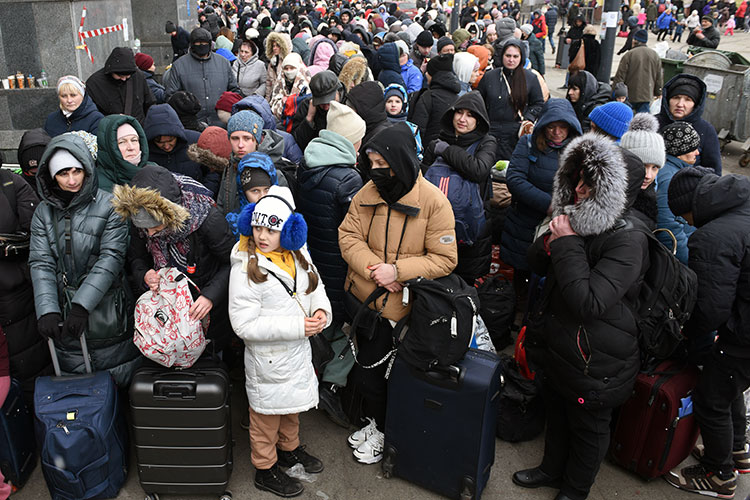
In the first days after Russia invaded Ukraine, Maksym Zubkov was in a state of psychic shock. From his office in Evans Hall, the mathematics Ph.D. student watched television news reports around the clock, sleeping only a few hours every night. He couldn’t work. He couldn’t study. In the span of a week, he lost 14 pounds.
But as the days passed, he started to sleep a little more, then to get out to meet with other Ukrainian students and faculty. It was from those discussions that Support Ukraine With Us was born, a fledgling international organization of volunteers that would raise funds and distribute food and medicine to elderly people, families with young children and others in Ukraine who could not flee the war, including pets.
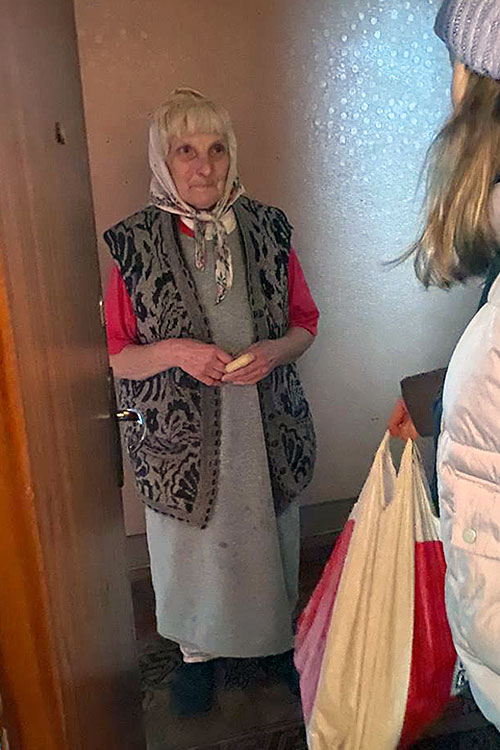
“Right now, we have a massive humanitarian crisis,” Zubkov said recently. “So the question that I’m trying to answer is: How can we help? How can UC Berkeley students and our local community help in the current crisis? Right now there is a lot of talk — and I want to see some action.”
Among the small community of Ukrainians and Ukrainian-Americans at UC Berkeley, other students tell similar stories. The invasion four weeks ago triggered a nearly overwhelming surge of anxiety and anger, but many have found ways to transform those emotions into action, sometimes working with anti-war Russian students and others from the region.
Some are doing research or raising funds for relief organizations. One, seemingly overnight, has become a political activist. Two Ukrainian attorneys, both Berkeley Law students, are in the theater of war: One is in Poland with his wife and 2-year-old daughter, studying, working and aiding other refugees. Another is near Kyiv, supporting military efforts by day and doing legal work at night.
“I’ve seen a community of students who quickly mobilized, often putting themselves last so that they could care first for family members, friends or others,” said Dania Matos, Berkeley’s vice chancellor for the Division of Equity & Inclusion. “They’ve dropped everything to help Ukraine and help each other, and they’ve shown incredible commitment.”
As war rages, “it’s really hard to be so far away”
The Berkeley student body includes only a small contingent of Ukrainian nationals. But others are Ukrainian immigrants, or the children of Ukrainian immigrants, or Russians, Poles and others with Ukrainian family. Add the faculty and staff with close ties to Ukraine, and the community is substantial.
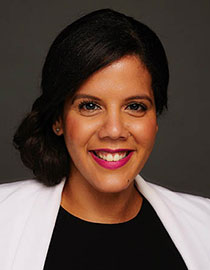
In the days after the invasion, campus leaders extended a range of support: Financial aid for students who could no longer get funds from home. Visa help for those unable to return home in the summer. Mental health support.
“Some of our students shared that half their families were able to get out (of Ukraine), but another half that was still there,” Matos said. “And they were dealing with all of this while trying to ensure that they are doing something to help. It’s really hard to be so far away and feel like you’re not doing enough.”
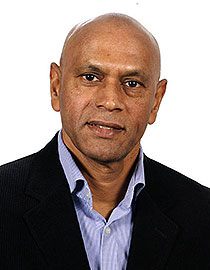
Inevitably, students have to address their own needs even as they try to help others, added Ivor Emmanuel, director of the campus International Office.
“Very often in crises, we find that students are cut off from their families because communication systems are down,” Emmanuel explained. “I had one Ukrainian student who was trying to maintain contact with her parents as they were fleeing their city, in real time. It was very emotional.
“In addition to dealing with the trauma of war in the home country, they’re also having to think about their own futures, near-term and longer term. So there’s a lot of anxiety.”
Two lawyers: at work in the theater of war
Arsen Kulyk and Dmytro Tymoshchenko are both experienced Ukrainian attorneys, and both are students in Berkeley Law’s Master of Laws program for foreign lawyers. Both are doing urgent work in the theater of war, with no distance to separate them from crisis.
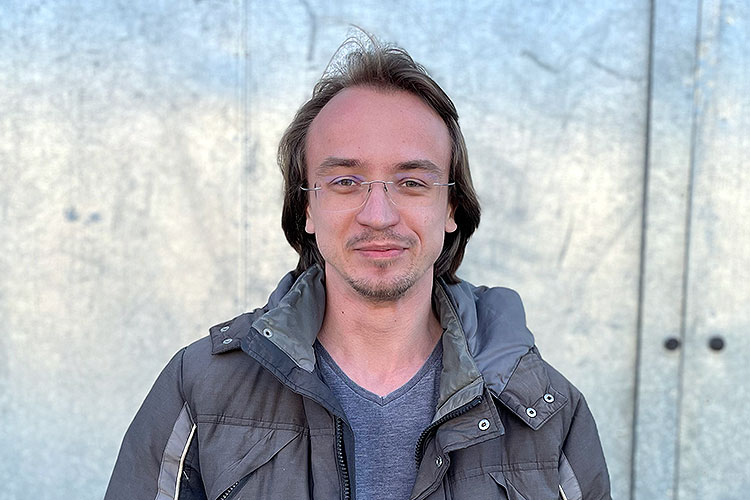
Kulyk has a private law practice and he’s on the legal staff at ELEKS, a global tech business based in Ukraine, but in the days before the Russian invasion, he and his family left their home in Lviv for Poland.
“We consciously left Ukraine with most of our belongings in anticipation of some kind of disturbances in Ukraine,” he explained in an email interview. “However, we were not expecting such a brutal and cruel full-scale war.”
Today they are in Rzeszow, about an hour’s drive west of the Ukraine border. They’re refugees aiding other refugees — some from ELEKS, others from among the millions who have fled the violence of the Russian assault. And every morning, starting before dawn, he studies for his Berkeley courses.
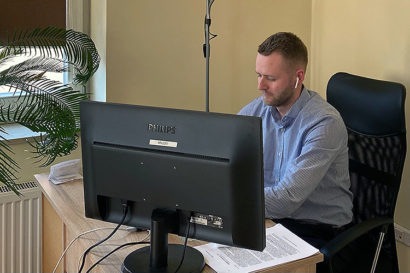
He is regularly in contact with his mother and other family remaining in Lviv — they have no plans to leave. “Sadly,” he added, on most days “I am able to spend only around one hour with my daughter, who unconsciously feels that something is wrong.”
Tymoshchenko is general counsel for two international firms with major operations in Ukraine: New York-based Depositphotos, which provides royalty-free photos, video and music, and VistaCreate, an online graphic design platform. The COVID pandemic, and now the war, have forced him to suspend his studies at Berkeley Law.
Since the days before the invasion, he has been in Boryspil, about 20 miles east of Kyiv. Recently he and his father drove some family members to a remote mountain outpost in the west, then returned home. Now he is on war footing: Doing legal work during nighttime curfew, and working by day to support the military defense.
“We make Molotov cocktails, prepare firewood, cook food, find necessary supplies, organize movement of refugees, and manage the supply of valuable goods like vests, helmets, radio transmitters, etc.,” Tymoshchenko wrote. “After a late lunch, we take one or several cars to visit the military posts — we bring them the things that we’ve prepared and collect new tasks for the next day.”
Tymoshchenko declined to discuss the combat violence that he has witnessed. But, he said: “We won’t leave until we earn our victory.”
And like Kulyk, he welcomed the support he has received from colleagues in Berkeley.
“Everybody is calling me and offering immense support,” he said. “This makes me smile every day.”
The organizer: Building a trans-Atlantic volunteer network
Max Zubkov has a foot in both worlds. He was born in Ukraine in 1992, soon after the collapse of the Soviet Union, and grew up in Chernomorsk, near Odesa. He left in late 2013 to join his mother and step-father in the U.S. That was just before the Ukraine’s Maidan revolution, which would lead to the collapse of the corrupt pro-Russian government.
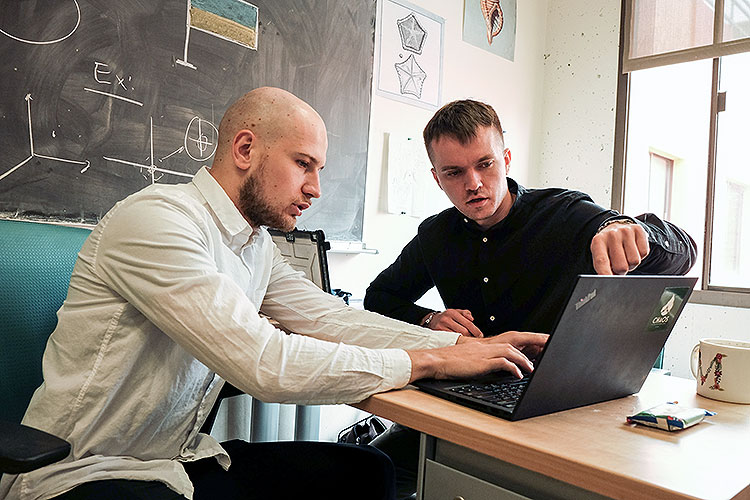
Today Zubkov is in Berkeley, a U.S. citizen and fourth-year Ph.D. student in math. He traveled to Ukraine in January to visit his father and other family; he was back in Berkeley when Russia invaded four weeks ago, and again had a sense of being in the wrong place at a crucial moment in history.
Initially he suffered a sort of traumatic shock — only gradually did he recover. Now Support Ukraine With Us has given him a fierce sense of mission. He has led development of a small, nimble organization, joining his network of U.S. associates to a network of old friends in Ukraine.
“The first donation came from an American friend of mine,” Zubkov explained. “Within 12 hours, we spent that money on a family who had lost their husband and father that same night.”
The effort is still a start-up, but it’s delivering food and medicine with a compassionate touch to Ukrainians in need, especially in Kharkiv, which has been battered by Russia. On the fly, he and the other volunteers are working to expand the network to Mykolaiv and other hotspots.
The activist: From her sorority to the frontline of protest
Marina Mezhibovsky is a Berkeley first-year student in architecture, born in San Francisco. Her parents were born in Ukraine, and they’re active in Bay Area Ukrainian affairs, so she was aware of the tension that built as Russian President Vladimir Putin massed troops on the border. But Mezhibovsky had never had a strong Ukrainian identity, and mid-terms were approaching, and she was focused on her studies.
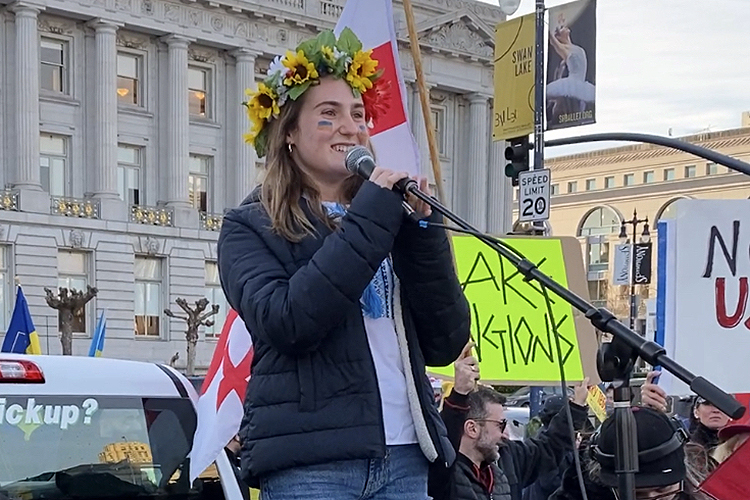
“I was at my sorority doing homework, it was pretty late, and I got a call from my mom,” Mezhibovsky recalled. “I picked up the phone and she’s, like, sobbing. And she says, ‘They invaded Ukraine! My hometown is getting bombed!’… Honestly, I didn’t know what to say.”
Her mother works for Nova Ukraine, a non-profit that provides humanitarian aid; she helped organize high-profile demonstrations at San Francisco City Hall. One day soon after the invasion, Mezhibovsky finished her classes and headed into the city to join the crowd.
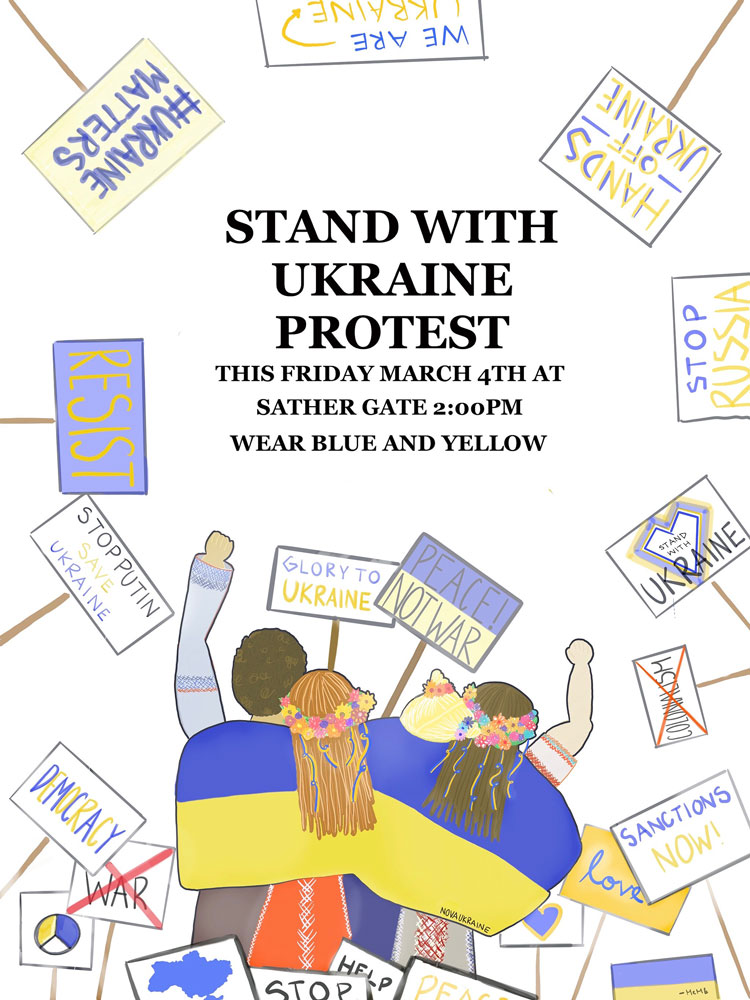
Unexpectedly, someone asked her to speak. She hadn’t planned for that — but she got into the back of pickup truck, took the microphone and did it.
“There was a huge turnout, which was pretty impressive and good to see,” she recalled. After that, “a few people came up to me and they said, ‘Oh, are you going to organize something in Berkeley?’ And I was, like, ‘I don’t know, I’ve never done this before. I’m a freshman.’”
But she took the initiative, and other Ukrainians joined the organizing effort.
At the same time, the pieces of family history and Ukrainian history she’d heard from her parents — their lives as Jews in the Soviet Union, at risk of persecution and denied permission to emigrate — all began to come together in her mind.
“I don’t even think I’ve cried about the situation,” she said. “I feel like I’m not fully processing it because I have so much going on that I can’t just stop everything. There are people in Ukraine joining the armed forces, fighting, protecting their country.
“I can’t do that physically, but there’s so much to be done here — there’s not really time to grieve.”
The uneasy expatriate: Can you go home again?
Like some fellow Berkeley students, Danylo Tavrov has begun to recover from the shock. Like them, he has found ways to contribute to the defense of his country and his people. As a volunteer with Nova Ukraine, he has researched English-language courses and cancer care options for Ukrainian refugees who may soon come to the United States.
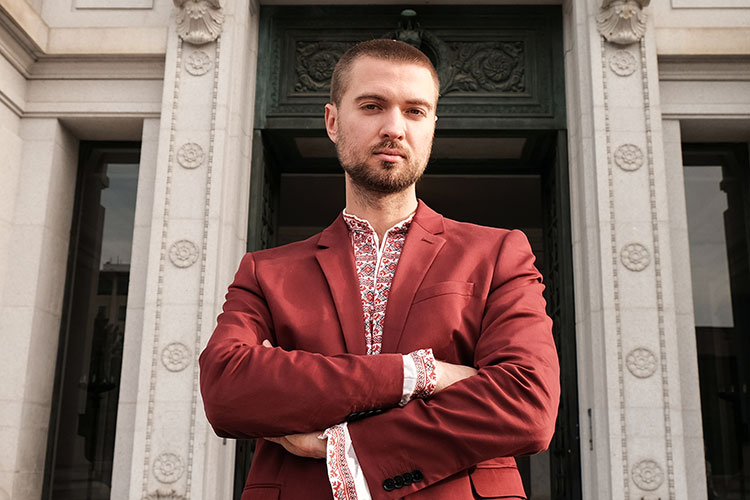
Still, Tavrov is profoundly uneasy. He had a rich academic life in Ukraine: master’s degrees in applied math and economics, a faculty post at the Kyiv School of Economics. He arrived at Berkeley in 2019, thinking he would get his Ph.D. in economics and then return home, where his mother and his friends still live.
“I want to contribute to the development of my country,” he explained. “I always treated Berkeley as a big opportunity — not as a way to get American citizenship, but really as a way to get necessary skills and knowledge and to be able to apply them in Ukraine.”
But what if he can’t return home?
He mentions a Ukrainian professor who has built a successful life at UC Berkeley while remaining deeply engaged in his homeland. Tavrov wonders whether he will have to do something similar.
Russia is destroying cities and towns, killing hundreds, displacing millions. Ukrainian forces may be defeating the Russian army, but Putin has hinted darkly at nuclear war.
“You can create all sorts of scenarios,” Tavrov said. “But the truth is that no one knows. Things are changing so fast. Someone can make a decision on the spur of the moment, which you never predicted.
“Who knows what can happen?”
